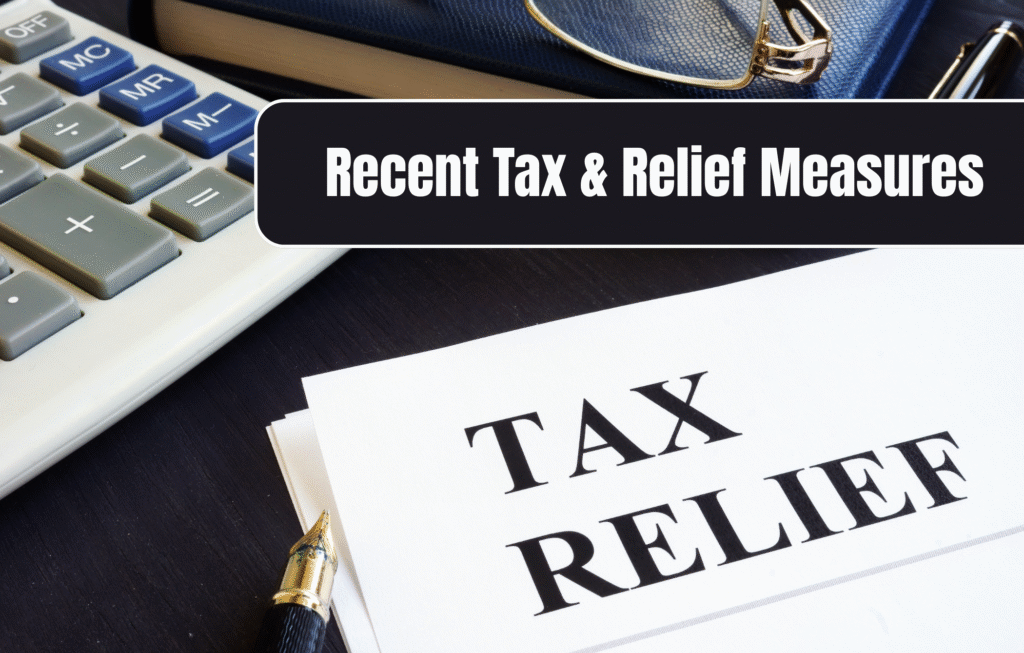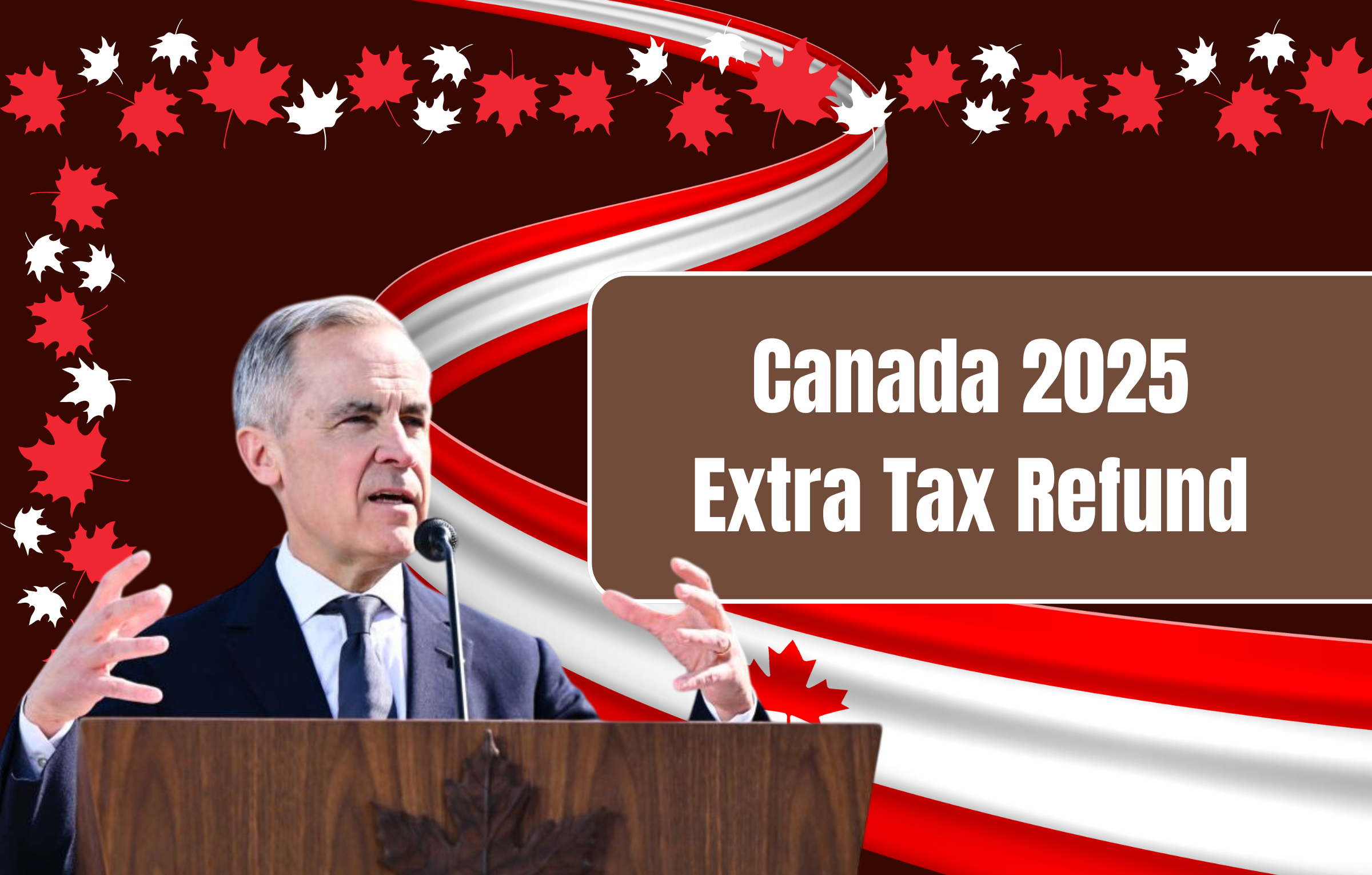Introduction: What Do People Mean by “Extra Tax Refund in Canada 2025”?
Every tax season, rumors circulate about a bonus or extra refund being distributed by the Canada Revenue Agency (CRA) — beyond regular refunds or credits. In 2025, one such claim is that there will be an extra tax refund or “boost” payment for Canadians, perhaps tied to cost-of-living relief or tax reform. Many wonder: Will this be real? If so, how much could it be? When will it be paid? And who qualifies?
To answer these, we need to separate confirmed government policy from speculation, and look at what the CRA has actually announced so far.
What Is Confirmed (What We Know)

Before looking at rumors, it’s important to understand the baseline: what the CRA and federal government have officially approved or implemented so far.
Regular Refunds and Credits
- When you file your income tax return, if your income tax withheld or credits exceed what you owe, you typically receive a refund. The CRA calls this “Line 48400 — Refund.”
- The CRA’s published refund timelines: when filing electronically, the goal is to issue notice of assessment and any refund within two weeks; when filing by paper, up to eight weeks.
- If the CRA finds outstanding debts (e.g. federal or provincial amounts owing, student loans, benefit overpayments), they may reduce or withhold your refund to offset those debts.
Recent Tax & Relief Measures

While nothing currently confirms a new “extra refund” for 2025, the government did introduce several relief and tax adjustments in recent years:
- The “More Money in Your Pocket” tax break: In November 2024, Canada announced a temporary GST/HST exemption on groceries and essential items from December 2024 through February 15, 2025.
- As part of that, the government also promised a Working Canadians Rebate — a one-time $250 payment to Canadians who worked in 2023 and earned up to $150,000.
- There is also a Carbon Rebate / Canada Carbon Rebate that distributes quarterly payments to offset carbon pricing costs, with the amount depending on province, family size, and whether you live in a rural area.
These contrast with the idea of a flat “extra tax refund” for 2025; they show that government relief tends to be structured, targeted, and phased.
What the Rumors Say (And Why They Are Likely Misinformation)
The notion of an “Extra Tax Refund in Canada for 2025” often appears in websites with titles like will you get this refund? check amount & date. Some of the claims include:
- That an extra one-time payment of, say, $250 will be deposited automatically by the CRA in early 2025.
- That the payment will be non-taxable and won’t require an application.
- That all Canadians whose income is below a certain threshold (for example, $150,000) will qualify.
One specific article titled “Extra Tax Refund In Canada For 2025 – Will you get this refund? Check amount & Date” claims a one-time $250 payment for eligible households, automatically deposited March 3, 2025. However:
- This article is published on a non-official domain (not CRA or government).
- The claim is not confirmed by any government source.
- There is no record of the CRA or Department of Finance announcing such a one-time extra refund for 2025 beyond existing rebates or tax credits.
Because of this lack of official confirmation, these claims should be treated with caution.
What Would Need to Be True for an Extra Refund to Happen
If, hypothetically, the government wanted to deliver an “extra tax refund” in 2025, these would be the essential components needed:
Component — What It Must Include
Legislative or budget approval — The federal government and Parliament would have to approve extra spending or a new program in the budget or supplementary estimates
Official announcement — A formal press release or CRA/Department of Finance notice, detailing eligibility, amounts, and timing
Mechanism for delivery — Likely via CRA through existing tax return systems or benefit payments; no new application would streamline it
Eligibility rules — Income thresholds, benefit status (e.g. must file a return), residency, citizenship/visa rules
Payment date & schedule — A clear date (e.g. mid-year or October) and a process to show the deposit (e.g. “CRA bonus refund”)
Non-taxable / non-affecting other benefits — To avoid reducing other benefits or creating undesired tax burdens
Unless those components are announced, such a program remains speculative.
Likelihood & Timing: Will a “$750 Extra Refund” Occur?
Based on what we know:
- There is no indication from CRA or the Department of Finance that a flat $750 “extra refund” is planned for 2025.
- The government seems to prefer targeted measures (e.g. rebate credits, relief for specific expenses) rather than broad one-time bonus checks.
- Past behavior suggests that any relief would be tied to existing programs (GST/HST credit, carbon rebate, working rebate) rather than a completely new line item.
- If something were to be implemented, an announcement likely would come in a federal budget or mid-year fiscal update.
Therefore, while not impossible, the chance of a $750 extra tax refund being granted en masse in October 2025 is quite low under the current publicly known policies.
What Canadians Should Watch & Do

Even if an “extra refund” is speculative, here’s how to stay prepared and possibly benefit if something like it is announced:
1. Monitor Official Sources
Watch these channels for announcements:
- CRA official site (canada.ca / CRA)
- Department of Finance Canada press releases
- Federal budget documents
- Media coverage of government fiscal updates
2. File on Time & Keep Info Updated
- Make sure you file your 2024 tax return by the deadline (usually end of April).
- Ensure your direct deposit, mailing address, and personal details are current with CRA to receive any refunds quickly.
- Even if you have little or no income, file a return to remain eligible if any bonus is tied to tax filing.
3. Understand Existing Refund & Benefit Programs
Because much of what people call “extra refund” is often mixed with existing credits and rebates, knowing and maximizing your entitlement helps:
- GST/HST credit — periodic payments to low- and modest-income families based on net income and household size
- Carbon rebate / Climate action incentive — quarterly payments varying by province
- Working Canadians Rebate (already announced for 2025) — a one-off $250 payment for eligible workers
- Disability Tax Credit (DTC) — non-refundable credit that can reduce your taxes, or result in back-dated adjustments if approved after years
4. Check CRA Refund Cycles
Even regular refunds have timelines:
- Online filing → target two weeks for assessment and refund (if valid)
- Paper returns → up to eight weeks
- Refunds may be delayed if your return is flagged for review, or if outstanding debts or debts to government exist
- You can check refund status via My Account with CRA
- Sometimes refunds are held to apply against owing balances, so you may not see “extra” payments if you have debts
5. Be Wary of Scams
Because the idea of “extra money from the government” is attractive, scams often emerge:
- Emails or websites asking you to “claim your extra refund” via forms or login to fake CRA portals
- Requests for bank details or identity verification under the guise of “issuing your bonus”
- Always verify through official CRA or government sites; do not click suspicious links
What a Hypothetical $750 Extra Refund Would Mean
If such a plan were adopted, here’s what it might look like in practice:
- A one‑time payment of CAD $750 to eligible individuals or households
- Deposited via CRA, perhaps when the 2024 return is assessed
- Directed to low-to-moderate income filers or those receiving benefits
- Possibly non-taxable and non‑affecting other credits
- Announced in a fiscal or budget plan, likely months in advance
- Processing and payout could take weeks depending on filing volumes
But again — this is purely hypothetical unless officially announced.
Summary & Key Takeaways
- As of mid‑2025, there is no confirmed extra tax refund of $750 in Canada beyond existing credits and rebates.
- Rumors about a new “bonus refund” stem from non-government sources, and lack official backing.
- The government already introduced relief measures like GST/HST exemptions and a $250 Working Canadians Rebate.
- If an extra refund were to be implemented, it would require legislative approval, official announcements, clear eligibility rules, and a distribution mechanism.
- To be ready, file your return on time, keep your CRA info up to date, watch for announcements, and understand existing credits.
- Always treat surprising refund claims skeptically and avoid unsolicited links or requests for personal info.
FAQs
1. Is there an extra tax refund confirmed for Canada in 2025?
No, as of now, the Canadian government has not confirmed any extra tax refund for 2025 beyond regular credits and rebates.
2. What is the $250 “Working Canadians Rebate”?
It’s a one-time, non-taxable payment for Canadians who worked in 2023 and earned up to $150,000. It’s expected to be distributed in early 2025.
3. Are rumors about a $750 extra refund in 2025 true?
No official source confirms this. The claim appears in unofficial articles and lacks any announcement from the CRA or federal government.
